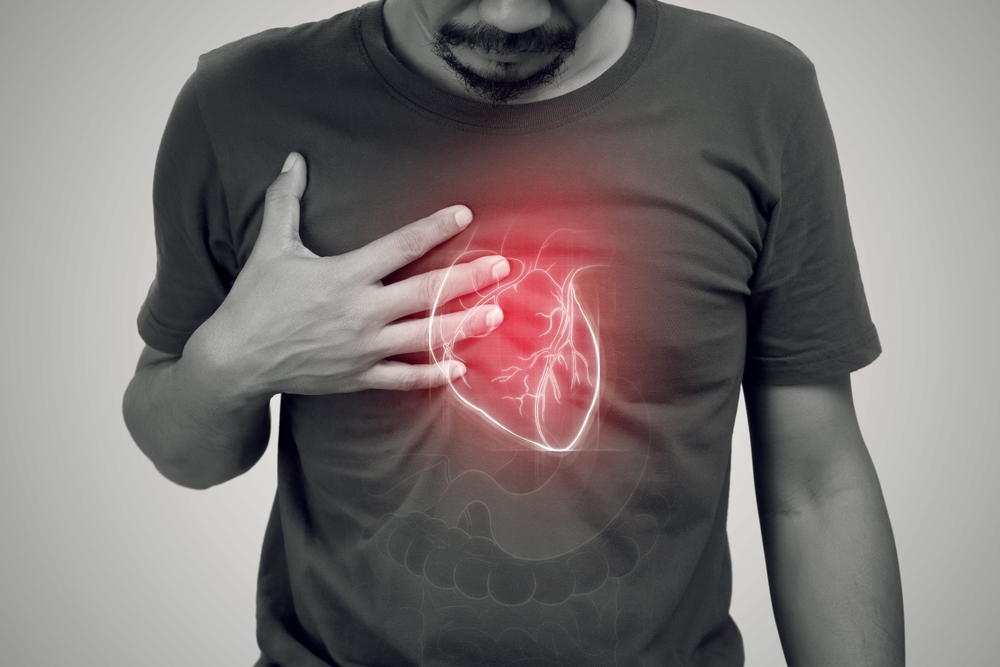When we hear the term Heart failure, it sounds like the heart is no longer working at all. But actually, it means that the heart isn’t pumping blood as well as it should. Congestive heart failure is one type that needs quick medical help, although people often use both terms interchangeably.
Your body relies on the heart to pump oxygen- and nutrient-rich blood to its cells. When the heart is weak, it can’t do this job properly. This can lead to feeling tired, having trouble breathing, and sometimes coughing a lot. Simple tasks like walking or carrying things can become hard.
Heart failure is a serious condition and usually can’t be cured. But many heart patients still live a good life with the right medicines and healthy habits. Let’s Check what healthy habits do they follow to keep their heart functioning.
Here are 10 Things to keep in mind if you have a Heart Failure
-
Track daily fluid intake
If you have heart failure, it’s common for your body to retain fluid. So your doctor might recommend limiting your liquid intake. Many heart patients are prescribed diuretics (water pills) to help them get rid of extra water and recommende to avoid sodium to reduce their heart’s workload. Consult your doctor tp know how much water should you drink in a day.
-
Avoiding or limiting alcohol
If you drink alcohol, do so in moderation. This means no more than one to two drinks per day for men and one drink per day for women. Talk to your doctor about whether it’s ok for you to have alcohol.
-
Monitoring your blood pressure
Checking your blood pressure at home, as well as at the doctor’s office, can help you manage high blood pressure. Write down your blood pressure numbers over time. This can show if there are any patterns and make sure the readings are accurate. Learn more about the DASH diet, which can help lower your blood pressure by eating healthy foods.
-
Eating for a healthy heart
Saturated fats, extra salt, and sugar are all bad for the heart. Try to reduce their intake. Ensure that you consume plenty of fresh fruits, veggies, and whole grains. You can switch to a DASH diet to lower your blood pressure and cholesterol.
-
Avoiding flu and pneumonia
Avoiding the flu and pneumonia is really important for people with heart failure. These illnesses can be more dangerous for them than for healthy people. Pneumonia is a lung infection you can get if you catch the flu. It makes it harder for your body to use oxygen properly, which means your heart has to work even harder.
Here are some tips to avoid getting sick:
-
Try to stay away from people who have a cold or the flu.
-
Stay out of big crowds, especially during the flu season.
-
Wash your hands really well and often, especially after going to the bathroom and before eating. Make sure anyone helping you does the same.
-
Try not to touch your face too much, as germs can get in through your eyes, nose, and mouth.
-
Quitting smoking
Patients with heart problems are recommended to stop using nicotine from tobacco smoke. If you have heart problems, it’s best to quit smoking. Smoking makes your heart beat faster and raises your blood pressure briefly. The smoke also has carbon monoxide, which takes away oxygen from your heart and brain. Smoking makes it harder for you to do physical activities and makes your blood clot more easily. It also lowers the good cholesterol in your body.
-
Being physically active
Exercises of moderate-intensitycan make your heart stronger. Exercise means anything that makes you move and burn calories, like walking, cleaning, or playing games. It’s regular when you do it often. How much and what kind of exercise you can do depends on how healthy your heart is. Your heart doctor can help you make a plan that fits you best.
-
Monitoring your weight
Gaining or losing weight quickly might indicate that your heart problem is getting worse. Even if you feel okay, it’s important to tell your doctor about any changes in weight so they can adjust your medicines if needed. This could help prevent you from hospitalisation and reduce the risk of complications.
Weigh yourself at the same time each morning, preferably before breakfast and after urinating. This will help you to trackl changes in weight from day to day. Discuss any unusual change with your doctor. Inform your doctor even if you gain 500 gm in one day for several days in a row, more than 2 kg in one week.
-
Managing stress
A patient with heart faliure, is always anxious or nervous about whats next going to happen to you and your family. It can trigger stress and worsen the heart condition. It’s important to work to manage stress and anxiety. Take 15 to 20 minutes every day to sit quietly, take deep breaths, and think about something peaceful. Try doing yoga meditation or take online sessions. But ask your doctor first before trying hard yoga poses.
-
Take your medications on time
Here is the list of medicines to keep your heart strong:
-
Cholesterol-lowering medications such as Atorvastatin, and Simvastatin.
-
Anticoagulants such as Warfarin and Heparin.
-
Hypertension medications such as Enalapril, Lisinopril, Losartan, Telmisartan and Valsartan.
-
Beta blockers such as Metoprolol and Atenolol to manage hypertension.
-
Antiplatelet agents such as Aspirin and Clopidogrel to prevent platelet formation.
-
Angiotensin receptor-neprilysin inhibitors such as Sacubitril and Valsartan for hypertension.
-
Calcium channel blockers such as Amlodipine, and Diltiazem.
-
Digitalis preparations such as Digoxin, and Digitoxin to treat heart failure and certain arrhythmias.
-
Diuretics such as Furosemide and Hydrochlorothiazide to treat hypertension and swelling due to fluid build-up.
-
Vasodilators such as Nitroglycerin and Hydralazine to treat high blood pressure and heart failure.
You can get these medications at the convenience of your home by ordering from online medicine apps. This is not the complete list of heart medications. The type of medication you need for your heart depends on your condition and severity. Pharmacy apps like Truemeds offer doctor’s consultations, they can guide you on medications and heart heath management. If you have heart failure, always consult a doctor before starting or changing any heart medication or following any new diet regimen.
Takeaway
Eating better, exercising, managing stress, avoiding smoking and changing some habits can help make heart failure symptoms better, slow down how fast the disease gets worse, and make your daily life better. It might be hard to make these changes, but work effectively for patients with heart failure. If you work them into your daily routine, it can really help. In fact, many people with mild to moderate heart failure can live almost like they don’t have it because of these changes.




